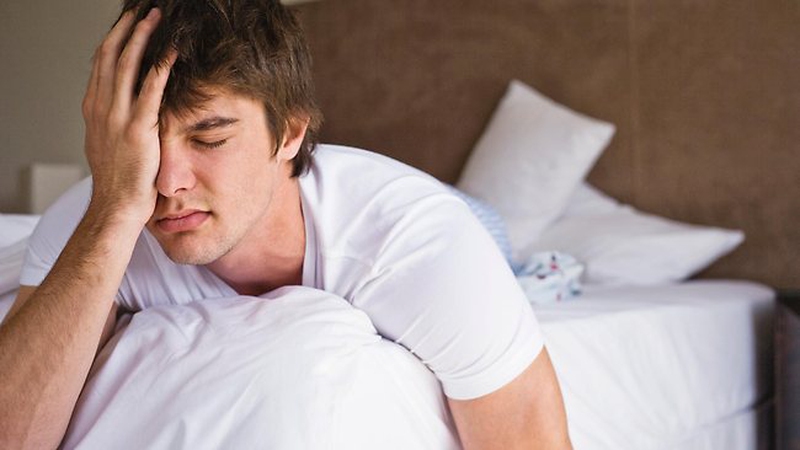Do you have fever after exercise? Nausea after working out? There could be many reasons why you are getting sick after working out. Fortunately, there are many ways to ease the problem, such as not eating too much prior to exercise, or working out at a lower intensity. It is important to take steps to prevent the illness you feel after working out. Here’s what to do to make working out easier on your body.

Getting Sick After Working Out--Why?
The way you work out
For most people, this means they have pushed themselves far too hard during their workout, and their body is rebelling as best it can. For others, it might mean they ate a meal too close to their workout time, or they ate too much. It might also happen if you are in the midst of an exercise session and stop abruptly, without the time to cool down.
Dehydration
If your nausea also includes a headache and body aches or weakness, you might be very dehydrated. This is a common problem when someone is working out very hard. To alleviate this problem, always make a point of drinking plenty of water before, during and after your workouts.
Overhydration
On the other hand, overhydration can also be a problem. If you drink too much water during serious exercise, you might dilute the electrolyte levels in your blood, thus leading to nausea, confusion, tremors, and diarrhea. This is especially common if you are in a long-term exercise situation, such as a marathon run.
General unwellness
If you have dizziness, nausea or even fever after exercise, start by looking at the big picture. Have you been sick lately? Have you been tired, exhausted, or dealing with a great deal of stress? Are you getting adequate sleep? If you are suffering from any kind of illness, you might want to stop exercising for a few days, to give your body time to recover.
What to Do About Getting Sick After Working Out?
When you are working out, if you start to feel very thirsty or hungry, or if you begin to feel weak and shaky, slow things down a bit and evaluate how your body feels. You might just need some water or a snack. If you find that your heart is pounding harder than normal, or you are feeling lightheaded, nauseated, dizzy, or otherwise ill, slow down the workout and begin your cooling down phase. You don’t want to push things hard when you feel like that.
When to See a Doctor
Not sure when to see a doctor for getting sick after working out? Here are some tips:
If the nausea goes away soon after working out, you are probably fine. However, if it persists for several hours, it’s time to consider that something might be wrong.
If you feel lightheaded, go by the same rule – if it goes away soon, you’re okay. If it lasts for more than 30 minutes, it’s time to make an appointment.
If you suffer from muscle cramps after working out, remember that it could be entirely normal. But if the cramps persist into the next day, it’s time to get checked out.
If you are experiencing cramping in your abdomen, try to wait it out. But cramping that lasts and actually gets worse is bad, and means a trip to the doctor as soon as possible.
Here’s what might happen if you ignore the symptoms, as told by someone who has been there:
“I used to work out really hard every other day, and things were just fine. But then I started feeling weak and dizzy during my workouts or after workouts, even though I got plenty of water. I tried eating first, but that didn’t help. I tried taking a few days off, but that made no difference. I finally went to the doctor and told him what was going on, and he did a lot of tests on me. Turned out I actually had an intestinal parasite! I had no idea. He gave me medication to take for one week, then my trainer advised a body cleanse to help even further. I’m still a bit weak, but definitely on the road to recovery, and I am no longer getting sick after working out.”
How to Prevent Getting Sick During or After Workout
Warming up and cooling down are very important parts of your exercise session. These steps ease your body into being prepared to work out, and then ease it back to a slower, calmer phase. Warming up and cooling down don’t just help your muscles prepare, they also affect your blood pressure and heart rate. When you don’t do prepare properly, these bodily functions might go a bit haywire, leading you to feel nauseas, weak, or even pass out.
Here are more ways to prevent:
Eat at least three hours before your workout. This allows your body to use the nutrients and fuel itself for the workout.
Eat a small snack one hour before exercise. This helps ensure that your stomach isn’t empty, and also helps keep your blood sugar on an even keel throughout your workout.
Exercise at a slower pace. You should be able to talk to someone while you are working out; if you can’t, you are likely doing something too intense. Slow things down!
Slow down if you feel pain, bloating or other discomfort. Muscle aches might be normal during workouts, but stomach cramps and other pains are not. They are signs that you are pushing too hard.
Cool down properly. This allows your heart rate to come back to normal gradually, and keeps your blood pressure from doing strange things.

View All Comments /Add Comment